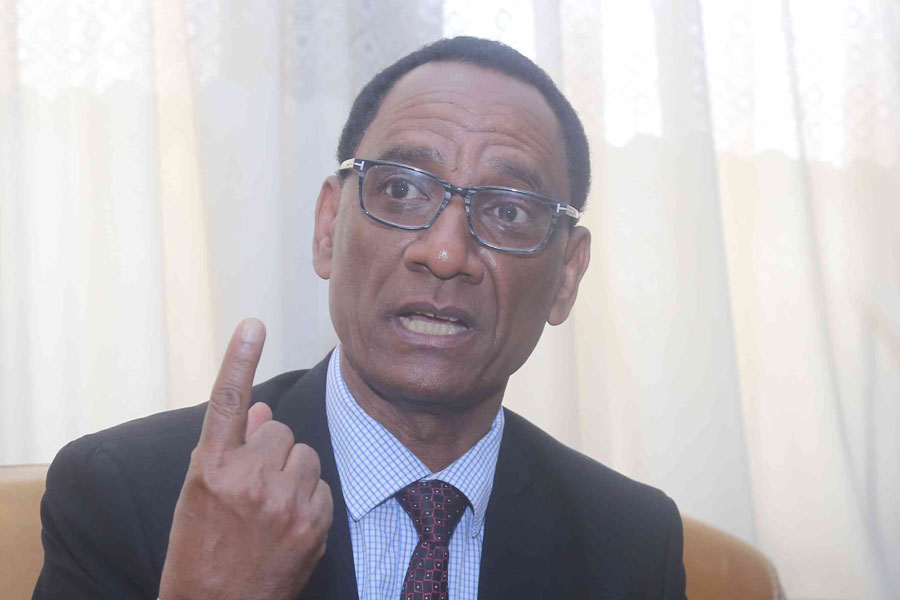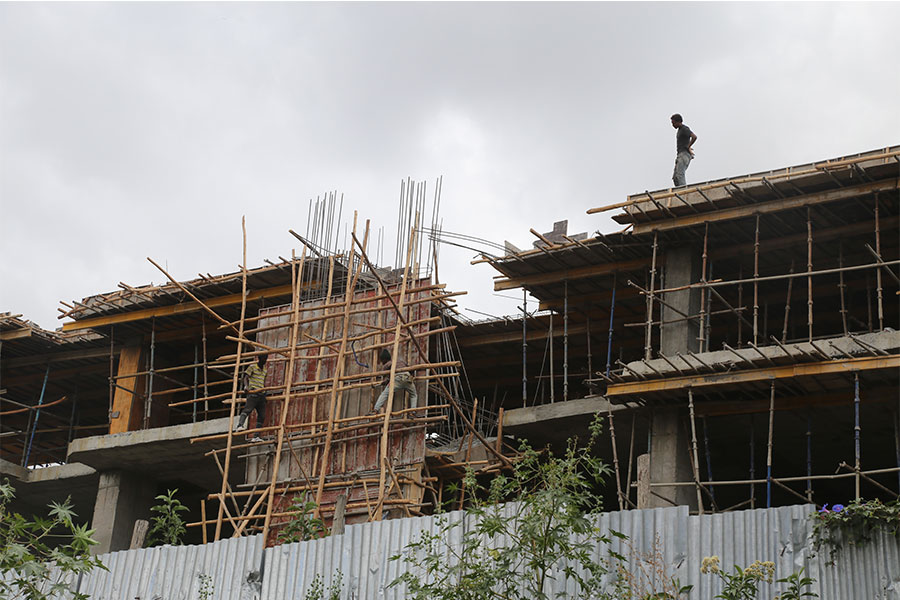
Viewpoints | Nov 21,2018
Candidates who run for a parliamentary seat should bring 3,000 endorsement signatures from their intended constituency, according to the new electoral law that was legislated last week.
The controversial bill, which was legislated on August 24, 2019, also stipulates that those running for regional councils get 1,000 signature endorsements from their constituency. The bill was legislated unanimously during an emergency parliamentary session called for the legislation of the bill.
The law, which will govern all general elections, local elections and referendums, as well as govern political parties along with their members and supporters, also requires independent candidates to gather 5,000 signatures to run for both regional and federal seats.
Having 164 articles, the law has spent almost a year in the making. It raises the number of founding members required to form a regional and national party from 750 and 1,500 to 4,000 and 10,000, respectively.
However, the new requirements were met by strong opposition from some political parties. A day before the proclamation was enacted, 57 opposition political parties expressed their disagreement with the proposed bill.
The political parties demanded the cancellation of 13 provisions and the revision of 35 articles from the draft Ethiopian Electoral Political Parties Registration & Election Ethics Proclamation.
The parties argued that such a requirement limits the citizens to exercise their political and constitutional right to organize, elect and be elected.
“The provisions that require signature endorsements to be a candidate and founding members of a party will narrow the political space in the country,” said Mulugeta Abebe, vice president of All Ethiopian Unity Party, one of the 57 parties that voiced their concern.
Apart from demanding revisions of articles on the draft, the parties claimed that their concerns and comments were not included in the proclamation and urged the parliament not to ratify the draft proclamation without rectifying their concerns.
However, the parliament in its third emergency meeting disregarded the concerns of the parties and found the bill to be comprehensive and detailed.
In replying to concerns raised over the bill, The Law, Justice & Democracy Standing Committee of the parliament stated that the 10,000 and 4,000 founding members’ requirements to run for national and regional election are reasonable for a country with over 100 million people.
“Such a requirement is practical, and any political party that can’t find 10,000 members should not run for a national election,” said Tesfaye Daba (MP-ODP).
Though the committee disregarded the propositions of the parties, it had made around 145 amendments of its own to the draft that was proposed.
One amendment that led to a fierce debate among the parliamentarians was the insertion of a new article that gave women the right to win the election whenever votes are tied.
The Standing Committee stated that the motive behind the article was to motivate women and ensure their fair participation in the political process.
But the article was met with strong opposition from some who claimed that the provision was unconstitutional.
The parliament took a separate vote on the specific article, and the majority voted for the removal of the article. But after further discussion on other articles, the parliament unanimously approved the law.
“Such provision can not be seen as affirmative action, and the constitution clearly states people would only get a seat if they get a 50+1 vote,” argued parliamentarian Sara Abe (MP-ADP).
Though new parties are required to fulfill the requirements when they register, the law gives existing parties a transitional period to transform and adapt to the new requirements. Currently, there are around 160 political parties in the country.
The new law gives the Ethiopian National Electoral Board the power to set the time frame for the transitional period through a directive, according to Soliana Shemelis, public relations adviser of the Electrical Board.
“The Board will set the deadline for the transitional period after holding discussions with political parties,” she said.
A few months ago the parliament legislated a bill that re-established the National Electoral Board of Ethiopia. The proclamation restructured the composition of the board members and their service years. It also made the board members full-time employees.
Two months ago, the parliament allocated three billion Birr for the May 2020 election. In addition, UNDP contributed around 1.2 billion Br pulled from various developmental partners. Half of the contribution came from the United Kingdom, while the rest was from Denmark, Finland, Ireland, Japan, Norway and Sweden.
Experts in the area believe that the law addresses the practical problems in Ethiopian politics.
“The major problem in Ethiopian politics is fragmentation,” said Yonas Ashine (PhD), a political science lecturer at Addis Abeba University’s College of Social Science.
He argues that the new law can solve this problem, as it produces benchmarks that would force political parties to be more inclusive.
However, he adds that in the implementation of such constitutional principles and ideas should not compromise the basic rights of political parties.
“The law, as it is, shall provide exceptions, so that it would not be limiting to minority groups,” he added.
PUBLISHED ON
Aug 24,2019 [ VOL
20 , NO
1008]

Viewpoints | Nov 21,2018

Exclusive Interviews | Apr 29,2023

Commentaries | Mar 19,2022

Fortune News | Apr 02,2022

Fortune News | Apr 26,2019

Dec 22 , 2024 . By TIZITA SHEWAFERAW
Charged with transforming colossal state-owned enterprises into modern and competitiv...

Aug 18 , 2024 . By AKSAH ITALO
Although predictable Yonas Zerihun's job in the ride-hailing service is not immune to...

Jul 28 , 2024 . By TIZITA SHEWAFERAW
Unhabitual, perhaps too many, Samuel Gebreyohannes, 38, used to occasionally enjoy a couple of beers at breakfast. However, he recently swit...

Jul 13 , 2024 . By AKSAH ITALO
Investors who rely on tractors, trucks, and field vehicles for commuting, transporting commodities, and f...

Sep 13 , 2025
At its launch in Nairobi two years ago, the Africa Climate Summit was billed as the f...

Sep 6 , 2025
The dawn of a new year is more than a simple turning of the calendar. It is a moment...

Aug 30 , 2025
For Germans, Otto von Bismarck is first remembered as the architect of a unified nati...

Aug 23 , 2025
Banks have a new obsession. After decades chasing deposits and, more recently, digita...